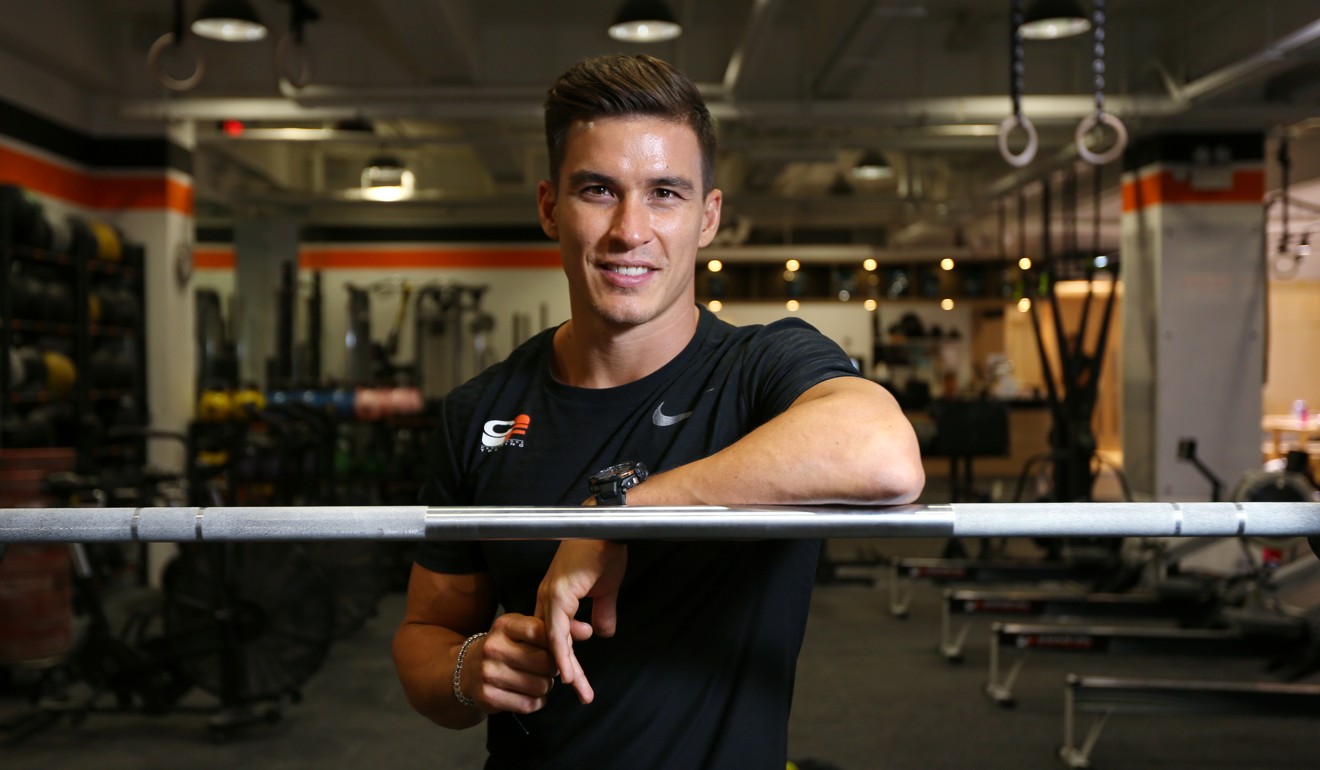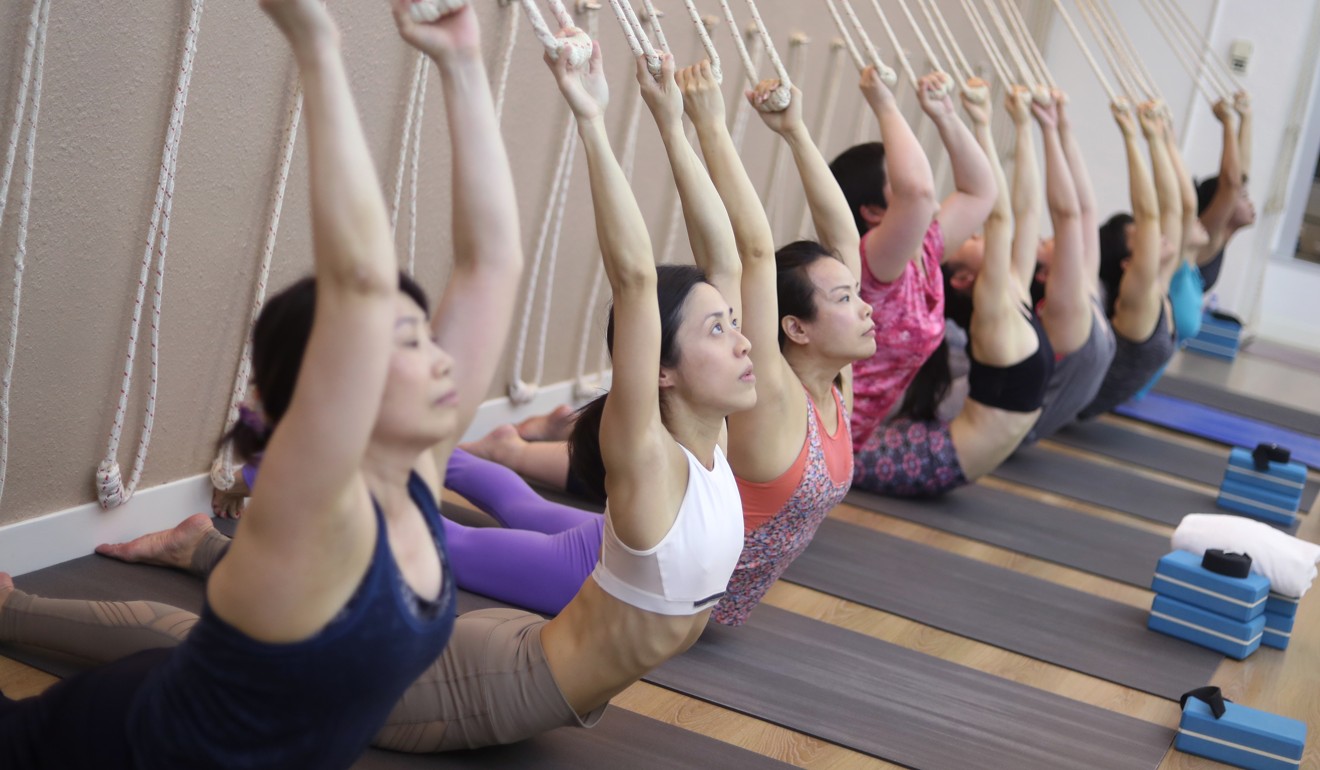
Exercising to relieve stress could do harm in long run without enough recovery time or a balanced lifestyle
Exercise is a stress on the body just like nervousness or anxiety, so people who work long hours and then hit the gym might need to rethink their routine
Personal trainers in Hong Kong worry that busy workers are adding exercise onto an already stressful existence to the detriment of their health.
Ed Haynes, founder and head trainer of Coastal Fitness Performance Training in North Point, says adding exercise to an already demanding and stressful life can end up doing more harm than good.
You want a body like this? Top model shares diet, fitness and life tips
“Exercise is actually stress on the body,” Haynes says. “People need to understand that. To get better at anything, you need to stress the system.”
Haynes says the problem is people working long hours and hitting the gym either before or after work. Without adequate recovery time, or a balanced lifestyle, they may be harming themselves in the long run.
“Our body can’t differentiate between different types of stresses,” he says. “My body doesn’t know the difference between exciting things like competing in some type of fitness competition or going on stage in front of 500 different people and, say, the fear, anxiety and nervousness of meeting my boss and thinking I’m going to get fired all day.”

Haynes, a former international rugby player, explains that cortisol, a natural hormone, is released by the adrenal glands when a person gets excited, including during exercise. But it also accumulates during a stressful day at the office.
Combining these two is not a good idea, he says. “Anything that excites me is going to create an insulin and cortisol spike.”
Playing sports or doing high-intensity training such as CrossFit, he adds, increases adrenaline and if a person’s levels do not drop to normal afterwards to recover, problems can arise.
Haynes says stress overload manifests in a number of ways including injuries, fatigue, illness and mental exhaustion, which force a person to slow down to recover against their will. Avoiding this breaking point is something people need to take seriously if they are concerned about their well-being over the long run.
There is no magical dose or amount of exercise that any one person should be doing
A recent study published in The Lancet Psychiatry journal found that people can easily overdo things when it comes to exercise. In a large scale study, they found that the people who got the most benefit physically and mentally from exercise only worked out three to five times a week for between 30 and 60 minutes each time. Anything more than that tended to have a negative physical effect.
Haynes says each person needs to tailor their fitness goals to take into account a variety of factors. One of the most important of these is how much exercise they can handle in what may be an already stressful life. “The last thing you want to do is layer stress on top of stress.”
He says that trying to find a quick fix when it comes to fitness never works in the long run, so cutting corners or working out really hard for a short amount of time won’t work.
“Is there a sweet spot? There is no magical dose or amount of exercise that any one person should be doing.”
There are a number of studies about how stressed out Hongkongers are. According to the Census and Statistics Department’s 2017 Report on Annual Earnings and Hours Survey, Hongkongers work an average of 44½ hours a week. A 2016 report from the same department found that 60 per cent of workers found their jobs highly stressful and half felt they had poor mental health.
Research this year from the University of Hong Kong’s psychiatry department also found that more than half (54.4 per cent) of Hong Kong people experienced one or more stressful life events in the past year, which were defined as to include work, academic, health, family and relationship stressful events.

Haynes says the last thing anyone should do when they’re feeling stressed out is exercise in a demanding fashion. He notes that when people come into his gym looking stressed out to begin with, he takes them through breathing exercises and light stretching to calm them down.
Claire Lim is co-founder and chief executive officer of Shared Space in Causeway Bay, a workout facility that teaches disciplines including dance, yoga, parkour and strength training. She says it is the fitness trainer’s job to keep an eye on their clients when they walk into the gym for a session. Those working out on their own need to be just as attentive.
“It is so important to be self aware about how your body feels. Personal trainers should have the responsibility to pinpoint the level of stress the client has when he or she walks in, and then tailor the intensity of one’s physical exercise,” she says.
“There is a tendency for people who are stressed out to perpetuate that sense of stress and engage in heavy workouts like Muay Thai or lifting heavy weights. This false perception of very yang dominant workouts actually fans the fire instead of presenting itself as an outlet to cool off. People need to balance instead with yoga or breathing exercises. Developing the breath layer of practice is definitely important.”
Hongkongers are fifth most stressed people in the world, study says
Lim adds that Hongkongers need to find the right yin to go with their yang when it comes to fitness.
“Finding a balance is definitely important to avoid burnout and to sustain one’s practice in the long run. If you’re someone who tends to overwork yourself, set lower and easier goals and lower reps, with the intention of creating a sustainable practice in the future.”

